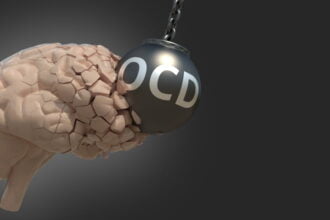Sport has long been heralded as the ultimate form of physical activity and recreation, but what about its impact on our physical and mental health? In recent years, research has shown that sport can have a significant effect on both our physical and mental wellbeing. From improving physical fitness to reducing stress levels, sports participation is increasingly being seen as an important part of a healthy lifestyle.
Sport is something that millions of people in the UK, and billions more around the world, share a passion for. Whether it’s something enormously popular like football, or something obscure like Gaffelhangen, the sport has the power to connect strangers to one another, to provide a sense of drama that can’t be replicated by any script, and to give us an excuse to get some exercise in.
Playing or watching?
While playing sports is obviously a powerful way to get physical exercise, there’s reason to suppose that simply watching sports can provide substantial mental health benefits. This applies whether you’re watching your sporting heroes at home on television, or watching them in person from the stands.
According to one survey, around a third of us are inspired by sports to be more physically active ourselves. This might mean trying to replicate the feats we see performed on the pitch, perhaps down the local park wearing your favourite players shirt trying to become the next Mohammed Salah, Messi or Ronaldo! Perhaps unsurprisingly, fans of some sports are more active than others, with cycling and tennis fans being more likely to enjoy the sport themselves than fans of motorsport or football.
What are the main benefits of watching or participating in sports?
Let’s run through a few of the key benefits of both watching and participating in sports.
Reduces stress
While it might not seem like it during a tense penalty shoot-out, watching sports can be a powerful way to relieve stress. You might forget about whatever is causing your stress for an hour or so, and focus on a valuable distraction. Naturally, there’s a point where sports fandom can become obsessive – but provided that you don’t reach this point, there’s value in sports as a stress-buster.
Improve self-esteem
If you’re participating in sport, then you’re exercising physically. This will almost always improve your self-esteem, which is a key indicator of overall mental health. You’ll feel this benefit even if the exercise itself isn’t that intensive. You’re working toward a common goal, and making progress every week. That will improve anyone’s self-esteem.
Mood-boosting
Participating in the right sport will release powerful endorphins – these are the hormones which help you to feel good. The more intense the exercise, the bigger the rush. So, going for a kickabout can actually act as a natural antidepressant – especially if there’s a social component in there, too.
What about the physical benefits?
The physical benefits of sport are perhaps more obvious. If exercise were a drug, then it would be classed as a miracle drug. It will reduce your risk of dying prematurely from a whole range of illnesses, while boosting your subjective quality of life. It will help you to stay in shape, and, therefore physically attractive. Finally, it will allow you stay mobile later into life. Given all of these benefits, it’s easy to recommend starting a sporting pastime, whatever your age, and whatever your level of experience.










